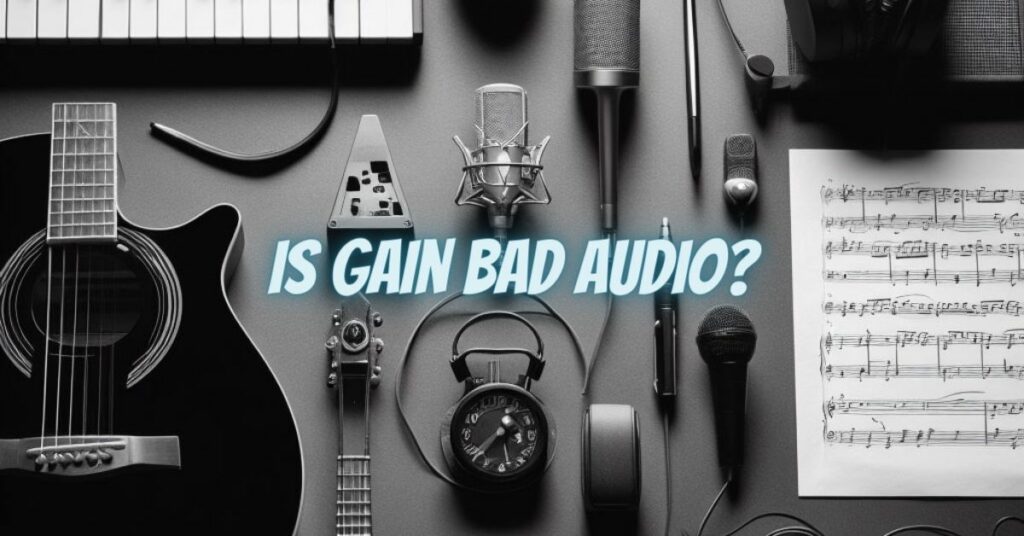Whether gain is bad audio is a complex question that depends on a number of factors, including the type of audio equipment you are using, the type of audio you are listening to, and your personal preferences.
What is gain?
Gain is a measure of how much an audio signal is amplified. It is typically expressed in decibels (dB). A higher gain setting means that the signal is amplified more.
How does gain affect audio?
Gain affects audio in a number of ways. First, it affects the volume of the audio. A higher gain setting means that the audio will be louder.
Second, gain can affect the tone of the audio. A higher gain setting can make the audio sound brighter and more distorted. This is because higher gain settings amplify all of the frequencies in the signal, including the high frequencies.
Third, gain can affect the dynamics of the audio. A higher gain setting can compress the dynamics of the audio, making the soft parts louder and the loud parts quieter.
When is gain bad for audio?
There are a number of situations where gain can be bad for audio. For example, if you increase the gain too much, you can cause the audio to distort. Distortion is a type of unwanted sound that can make the audio sound harsh and unpleasant.
Additionally, if you increase the gain too much, you can overload the audio equipment. This can cause the audio to sound bad and can also damage the equipment.
Finally, if you are recording audio, increasing the gain too much can cause the audio to clip. Clipping is a type of distortion that occurs when the audio signal exceeds the maximum level that the recording equipment can handle.
How to avoid bad audio from gain
There are a few things you can do to avoid bad audio from gain:
- Use your ears. The best way to determine whether the gain is too high is to listen to the audio and see if it sounds distorted. If the audio sounds distorted, turn down the gain.
- Use a limiter. A limiter is a device that can help to prevent distortion by limiting the peak level of the audio signal. If you are recording audio, it is a good idea to use a limiter to prevent clipping.
- Don’t be afraid to turn down the gain. It is better to have audio that is too quiet than audio that is too loud and distorted.
Gain is a powerful tool that can be used to improve the sound of audio. However, it is important to use gain carefully to avoid distortion and other unwanted effects. By following the tips above, you can avoid bad audio from gain and get the best possible sound from your audio equipment.
Here are some additional tips for using gain effectively:
- Experiment with different settings. There is no one-size-fits-all answer to the question of how much gain to use. Experiment with different settings to find what sounds best for the type of audio you are listening to and your personal preferences.
- Use good quality audio equipment. High-quality audio equipment is better able to handle high gain levels without distorting.
- Use gain staging. Gain staging is the process of setting the gain levels of different devices in a signal chain to achieve the best possible sound quality. If you are using multiple devices in your signal chain, it is important to set the gain levels carefully to avoid distortion.
With a little practice, you will be able to use gain effectively to get the best possible sound from your audio equipment.


